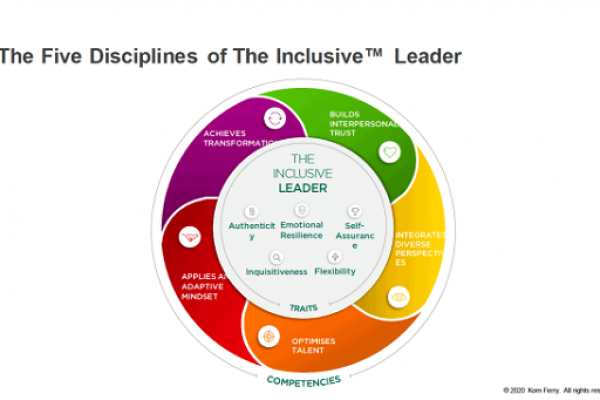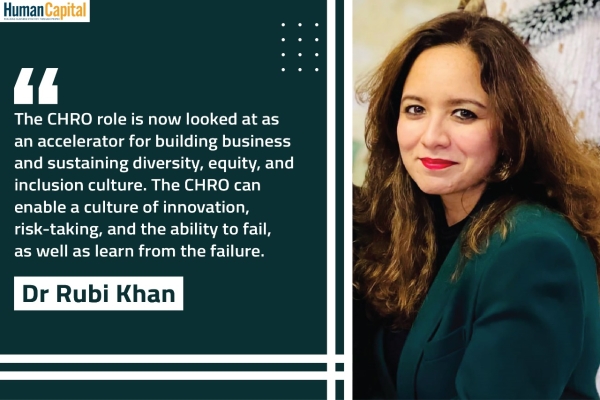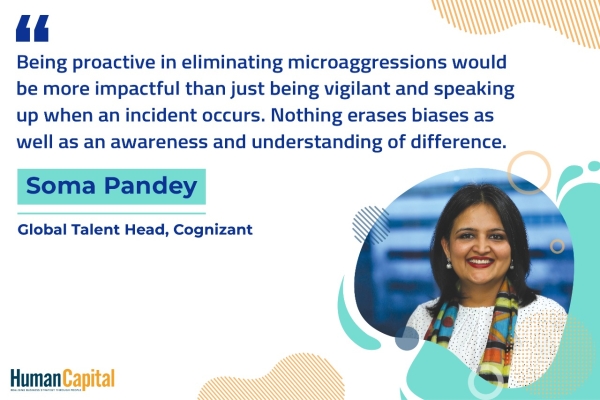Organisations cannot be resilient if their People Leaders are not in harmony with the evolving contextual competencies. Given the uncertainty, nothing beats a leader with humility, perseverance, and creativeness on any given day.
Respect comes as a precursor for being an influential leader. Positional authority provides a leader with influence with a specific context for a limited time, whereas moral authority lingers well beyond the reporting diagrams.
Volatility, Uncertainty, COVID-19 and Ambiguity are the precise reasons for which the world needs good People Leaders. The year 2020 has put many People Leaders on a steep learning curve to tide over unprecedented leadership challenges caused by the pandemic. As we pin our hopes for a safer 2021, many are left wondering as to what needs to be done to support the people under their care, given the backdrop of the evolving situation.
While some organisations are partially back to normal working with precautions, several others are looking at tweaking policies to cement flexi-working as they journey into the future. This arrangement, however, is not the same as work from home, as the select workforce is operating in the presence of key stakeholders at home and they do merit their share of attention and time.
COVID-19 has followed a non-discriminatory approach by affecting people regardless of their workspaces in multiple ways. The evolving situation has become our best teacher. It is an undeniable fact that all employees, whether sweating out on site or working from home while struggling to maintain personal space at times, deserve a higher degree of empathetic leadership. Work has invaded into our family spaces with a prolonged remote working arrangement and some family chores have invaded into our workspace. Leadership is not only about being profit focused, but also about being responsible as a shepherd for the well-being of a thriving workforce.
Given the COVIDIfied constraints, it is certainly a huge ask of any leader. However, the journey can be more engaging if our people leaders demonstrate these ACTS prominently as we journey further.
Authenticity
Being authentic is the ability to do what you say and say what you do. It is all about practicing what you preach. Even in the absence of perfect answers, leaders should keep listening to their team members and empathise with their concerns. Leaders should not be hesitant to share their own concerns with the team. Moving one step further, authenticity is not exactly about positional authority, rather, it is on moral authority. Respect comes as a precursor for being an influential leader.
Positional authority provides a leader with influence with a specific context for a limited time, whereas moral authority lingers well beyond the reporting diagrams. Needless to say, that the moral authority is essential more so during times of disruptions and uncertainties. It is about having the nerve to say that we do not have the solutions now but will try to get them as we walk along. Once we are able to walk the talk then employees will start to believe in our thinking process, engagements and responses. As a people leader, one needs to be exceedingly human. Consistent demonstration of concern for real fears and anxieties being experienced by employees, not only professionally and economically, but also socially and personally is what will keep the flock together and flourishing. Adding empathy in all leadership dispensations is critical in the distance economy.
Crisis Resiliency
A resilient leader remains glued to the organisation’s core strategic intent and grabs every transformational opportunity while managing the day-today confusion. The Leader’s ability to put safety and wellbeing of people first and broadly trust in the team as leaders in their own space is what makes resiliency easier. Leaders must emulate forward-leaning and the sense of urgency as competencies to shape the future as a team. Delegation is another pivot that empowers the team to own their functioning and coping. Leaders of 2021 cannot afford to be afraid to let go and delegate to others. The ability and willingness to give up control and decentralise power that comes alongside responsibilities is imperative.
A good leader who understands risks and repercussions of a delayed decision acts on early signals of trouble and does not hesitate to make tough intime decisions. In times of great uncertainty, people expect their leaders to lead with calmness, composure, the willingness to share information with clarity, and the audacity to admit if they need to change course. Good leadership embraces the uncertainty and speed of change with agility. A leader’s own emotional resilience when confronted with ambiguity is the foundation to what the team can achieve. Leaders and managers who can maintain psychologically safe and emotionally resilient teams even during such times will truly experience the impact of what motivated teams can do
A growth and newness inclined mind-set, as opposed to ‘been there, done that’ will allow leaders to experiment, learn from failures, and inculcate the same tenet in their team members. Now is the time to reinvent teams that will thrive in the workspace of tomorrow.
Trust
Trust is earned and that feeds into influencing ability. People crave for certainty even during ambiguous times such as this has been. Credibility sets the foundation for trust building and once trust sets in leaders are positioned as influencers. All people leaders need to hear this out loudly, “You can be uncertain but you cannot be unclear.” In simple words, leaders need to be adequately clear in communicating the exact situation they are in or the developments going forward.
Leaders of 2021 cannot afford to be afraid to let go and delegate to others. The ability and willingness to give up control and decentralise power that comes alongside responsibilities is imperative.
Pretention is a pitfall that all leaders need to acknowledge. Pretention erodes credibility much quicker than a simple admission of “I do not know” stand. Be clear even when you are not sure about things. An individual will be more open for influence when she or he is convinced that the leader is aware of the feeling of the individual. Leaders need to be more human and check-in often with the people they have. I personally do not recollect any exit interview in which communication was cited as the reason for leaving. Trust takes a long time to establish, but only a moment to crash. Hence, it is vital to safeguard honesty at any point in time.
Stewardship Leadership implies responsibility to people under care and attracts duty of care approach. With teams working from home, some on sites, leaders have to play the role of the binding glue that brings people together on a common purpose where everyone feels valued and included. Managers need to be mindful not let ‘out of sight, out of mind’ mind-set to creep in. Inclusive leadership is key to chase success. Leadership is not about making decisions on your own, but owning the decision once you make them, so seek counsel, consult and let the decision be co-owned by your people at large. Keep your life simple, it helps. It is critical to realise that you cannot expect the team to do anything that you will not do yourself. As leader, one critical piece is to protect learning budgets to avoid any regret later. The current crisis will require a larger skill shift much more than before for the next normal. Leaders should step up as shepherds. A shepherding presence in matters pertaining to the team is more important than the best of the best presentation. Happy 2021!
.png)
Does your organisation support you in maintaining work-life boundaries?
Trending
-
SBI General Insurance Launches Digital Health Campaign
-
CredR Rolls Out 'Life Happens' Leave For Its Employees
-
Meesho Announces 30-Week Gender-Neutral Parental Leave Policy
-
Microsoft Unveils Tech Resilience Curriculum To Foster An Inclusive Future
-
60% Indian Professionals Looking For Job Change Due To COVID: Survey
-
SpringPeople And Siemens Collaborate For Digital Transformation Push
-
86% Professionals Believe Hybrid Work Is Essential For Work Life Balance: Report
-
Almost 1 In Every 3 People's Personal Life Affected Due To Work Stress
-
Meesho Rolls Out Reset And Recharge Policy For Employees
-
80% Of Talent Leaders & Academics Say Pandemic Changed Skill Needs For Youth: Report
-
Hero Electric Rolls Out 'Hero Care' Program For Employees
-
Human Capital In Collaboration With ASSOCHAM Hosts Virtual Conference
-
IKEA India, Tata STRIVE Collaborate To Create Employability And Entrepreneurship Opportunities
-
SAP India, Microsoft Launch Tech Skilling Program for Young Women
-
DXC Technology, NASSCOM Collaborate For Employability Skills Program
-
Lenskart To Hire Over 2000 Employees Across India By 2022
-
Mindtree Launches Learn-and-Earn Program
-
Tata AIA Extends 'Raksha Ka Teeka' To Its Employees
-
Swadesh Behera Is The New CPO Of Titan
-
NetConnect Global Plans To Recruit 5000 Tech Professionals In India
-
Hubhopper Plans To Hire 60% Of Indian Podcasters By 2022
-
Corporate India Needs More Women In Leadership Roles: Report
-
Aon to Invest $30 Million and Create 10,000 Apprenticeships by 2030
-
Tech Mahindra Launches ‘Gift a Career’ Initiative for Upskilling of Youth
-
40% Women Prefer Flexible Working Options in Post-COVID World: Survey
-
3 out of 4 companies believe they can effectively hire employees virtually: Report
-
Vodafone , CGI and NASSCOM Foundation launch digital skills platform
-
Odisha: Bank, postal employees to deliver cash for elderly, differently-abled persons
-
Skill India launches AI-based digital platform for "Skilled Workforce"
-
Hiring activity declines 6.73% in first quarter: Survey
-
70% startups impacted by COVID-19 pandemic
-
Bajaj Allianz Life ropes in Santanu Banerjee as CHRO
-
Over 70 Percent MSMEs look at cutting jobs to sustain businesses
-
93 Per Cent employees stressed about returning to office post-lockdown
-
Johnson & Johnson India announces family benefits for same gender partners
-
Indian firms turning friendly towards working mothers
-
Welspun India names Rajendra Mehta as new CHRO
-
Wipro partners with NASSCOM to launch Future Skills platform



Human Capital is niche media organisation for HR and Corporate. Our aim is to create an outstanding user experience for all our clients, readers, employers and employees through inspiring, industry-leading content pieces in the form of case studies, analysis, expert reports, authored articles and blogs. We cover topics such as talent acquisition, learning and development, diversity and inclusion, leadership, compensation, recruitment and many more.
Subscribe Now












































Comment